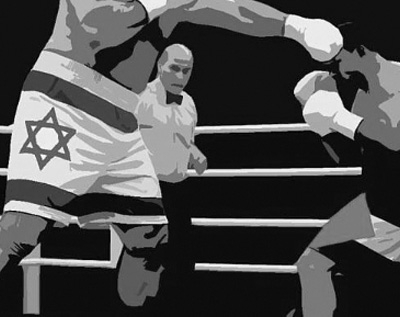< Más Articulos : The arab underdog (Times of Israel - 15 Jul 2025)
-
-
The arab underdog (Times of Israel - 15 Jul 2025)

How on Earth did the Arabs end up as the underdogs in their conflict with Israel?
It may have happened inadvertently, but today there is no doubt: 400 million Arabs now appear to be the underdogs in a struggle against just 7 million Jews living in Israel. On a global scale, the contrast is even more striking, 2 billion Muslims versus 15 million Jews worldwide.
Currently, the combined population of Gaza and the West Bank is around 5 million. Since 1948, had Palestinian leadership accepted the terms of the UN Partition Plan, they could have established an independent state, Palestine. Instead, under pressure from neighboring Arab nations, they rejected the offer and with help of Arab countries launched a war to seize all the territory, including that designated for the Jewish state. That territory would become the modern State of Israel.
Over time, the broader Arab-Israeli conflict overview narrowed into the Israeli-Palestinian struggle. In this reframed narrative, Palestinians, lacking a formal army, possessing limited military power, and having a smaller population, are widely seen as the underdogs.
Several factors contribute to the enduring hostility many Arabs feel toward Jews and Israel.
The first is symbolic and rooted in religious tradition: According to the biblical narrative, when Sarah was initially unable to bear children, Abraham had a son, Ishmael, with her Egyptian maidservant, Hagar. Later, after Sarah gave birth to Isaac, Hagar and Ishmael were cast out. In the biblical account, God promised Hagar that Ishmael would become the father of a great nation. Ishmael is traditionally seen as the forefather of the Arab peoples, and this story is often viewed as a foundational grievance, one that frames the Jews as having rejected and wronged the ancestor of the Arabs.
The second factor is geopolitical. Certain Islamist movements advocate for the reestablishment of a global caliphate. Israel, positioned at the heart of the Middle East, is a formidable obstacle to that goal. As a democratic, non-Muslim, militarily advanced state, it contradicts the narrative of inevitable Islamic supremacy in the region and stands in the way of expansionist ambitions.
Added to this is the long and dark history of antisemitism, an ancient and persistent hatred rooted in envy, scapegoating, and conspiracy theories. This prejudice has provided fertile ground for global acceptance of antisemitic and anti-Zionist rhetoric, often cloaked in the language of human rights or resistance.
Capitalizing on this context, Arab states, radical Islamist groups, and antisemitic movements have worked for decades to position the Palestinians as global symbols of victimhood. Countries like Iran and Qatar, and organizations such as Hamas, have sustained the conflict by orchestrating situations that put Palestinian civilians in harm’s way, knowing that the images and narratives resulting from those events will feed international outrage against Israel. These scenes are carefully curated and amplified to reinforce the perception of Israel as a brutal oppressor.
This global campaign has not been limited to protests or propaganda. For years, anti-Zionist and antisemitic narratives have infiltrated educational systems, international organizations, NGOs, governments, media, financial institutions, and corporations. The result: a vast network of ideological supporters and activists, many of whom appear detached from facts or history.
The aftermath of the October 7, 2023 massacre and mass kidnapping of Israeli civilians by the terrorist organization Hamas provided a chilling example. Instead of universal condemnation, mass protests erupted across the globe. Young and old, from Europe, the Americas, and Asia, marched in the streets chanting “From the river to the sea”, a slogan openly calling for the elimination of Israel.
In this narrative, Arabs and Muslims, as represented by the Palestinians, are cast as noble underdogs, while Jews are painted as powerful global oppressors. Israel, in this view, is not a tiny democracy surrounded by enemies but a colonialist juggernaut to be dismantled.
If this imbalance of perception began as an accident of history, it no longer is. Arab and Muslim actors have learned to manipulate global opinion by promoting a narrative in which they are perpetually oppressed, and Israel is the aggressor.
Now that we understand this, it is imperative to challenge the distortion. We must reframe the narrative, not to deny Palestinian suffering, but to expose the cynical manipulation behind much of it. The Jewish people and the State of Israel have been under relentless attack, and they have every moral and legal right to defend themselves. Not just to preserve a state, but to survive as a people.
Times of Israel (July 15 2025)
https://blogs.timesofisrael.com/the-arab-underdog/
( Por: Yehudi Sabbagh , 15/07/2025 )
